Posted on 12/4/2023

Your vehicle's dashboard is equipped with several warning lights, each designed to alert you to potential issues. One of the most critical warning lights is the oil pressure warning light, often shaped like an oil can or labeled "OIL" on your dashboard. When this light illuminates, it's a cause for concern, and understanding why it's on and how to respond is crucial. What Does the Light Indicate? The oil pressure warning light is tied to the health of your engine, specifically the engine's lubrication system. When the oil pressure warning light comes on, it means that the engine's oil pressure has dropped below a safe level. This can happen for various reasons, and understanding these causes is essential for prompt and appropriate action. Potential Causes:Low Oil Level: The most common reason for low oil pressure is a low ... read more
Posted on 11/29/2023
.jpeg)
While commuting, heavy traffic is the thing that tests the nerves of every driver. As your car becomes a mere note in the bustling streets, the quest for safety takes center stage. What should you do and what shouldn't? Staying in the left or right lane, switching lanes early or late - all questions you probably ask. We don't blame you because it really can be nerve-wracking, so make sure to continue reading! 1. Safe Driving Habits In heavy traffic, every vehicle must master the art of cautious driving. By anticipating the moves of surrounding cars, staying vigilant for sudden lane changes, and maintaining a safe following distance, your vehicle becomes a nimble performer, gracefully adapting to the ebb and flow of traffic. Adopting habits like good follow distance, checking blind spots, and similar basic rules, really goes a long way. 2. Patience is Key In the rush-hour hustle, patience is not merely a virtue; it's a serene state of mi ... read more
Posted on 10/29/2023
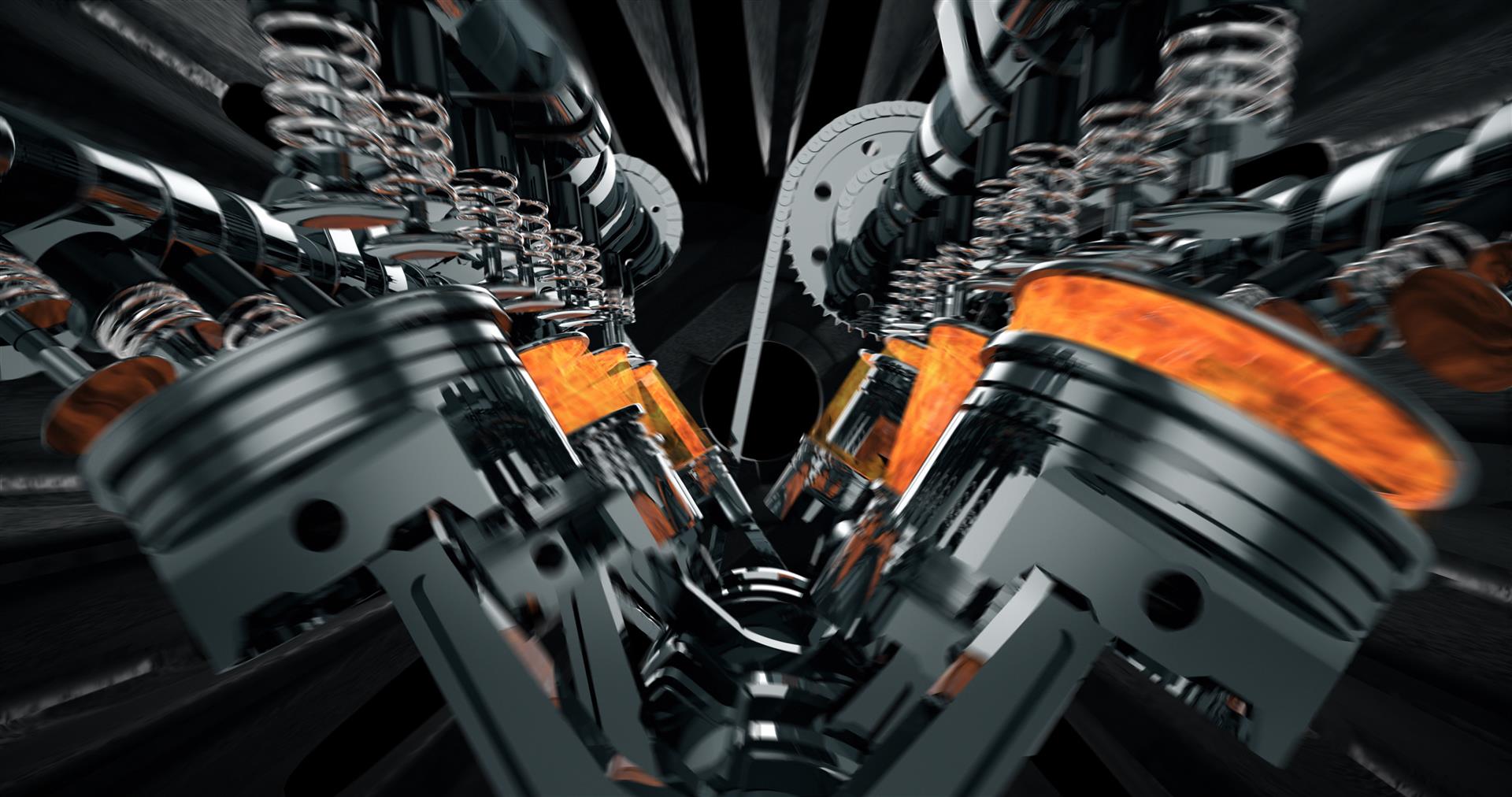
It's easy to overlook the importance of seals and gaskets when it comes to keeping our beloved vehicles running smoothly. Yet, these components play a crucial role in protecting our cars from harmful elements. We understand how crucial it is to maintain these essential components, and we're here to help you uncover the secrets to ensuring your automotive adventures remain safe and hassle-free. Proper Inspection and Maintenance Routine check-ups are the lifeblood of seal and gasket longevity. Begin with a visual inspection, scanning for signs of wear, cracks, or leaks. Take a moment to feel the area around the seals, searching for any irregularities. If there's even a hint of compromise, it's time to take action. Don't forget to consult your vehicle's manual for the recommended maintenance schedule. Following this diligently can save you from unwelcome surprises on your next escapade. Nurturing the Engine Your engine is ... read more
Posted on 9/30/2023

There's nothing quite as unnerving as seeing your car's temperature gauge inch into the danger zone. Engine overheating is a common issue that can leave you stranded and frustrated. In this blog, we'll uncover the primary factors that lead to engine overheating, helping you understand the problem and keep your cool when your car's temperature begins to rise. Low Coolant Levels One of the most frequent causes of engine overheating is low coolant levels. Coolant, also known as antifreeze, plays a vital role in regulating your engine's temperature. When the coolant level is too low, your engine can't dissipate heat effectively, leading to overheating. Faulty Thermostat The thermostat in your car controls the flow of coolant through the engine. A malfunctioning thermostat can get stuck in the closed position, preventing coolant from circulating properly and causing overheating. Leaking Hoses or Radiator Coolant hoses and the radiator can develop leaks ... read more
Posted on 8/31/2023
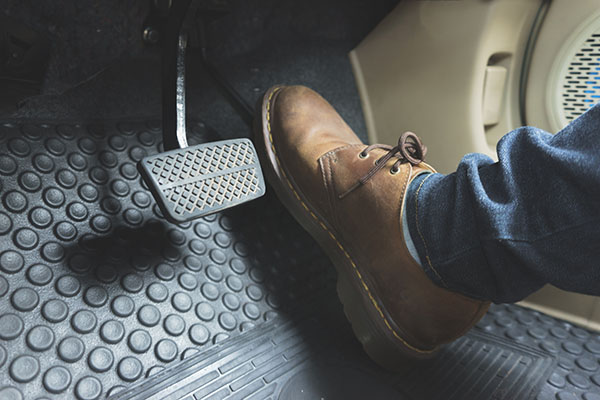
The reassuring firmness of your brake pedal is a sensation that instills confidence and safety as you navigate the roads. However, what do you do when that confidence is compromised by a sudden change in how your brake pedal feels? If you've noticed your brake pedal feels unusually soft or mushy, it's not a sensation to be ignored. After all, who want's to drive without brakes? Understanding the Brake System Before we explore the causes of a soft brake pedal, it's essential to grasp the basics of your vehicle's braking system. When you press the brake pedal, you're initiating a hydraulic system that transmits your force to the brake calipers or drums, ultimately slowing down or stopping your vehicle. The sensation of a firm brake pedal comes from the efficient transfer of this force. However, when that firmness is compromised, it's a sign that something might be amiss. Air in the Brake Lines One of the most prevalent cau ... read more
Posted on 7/31/2023
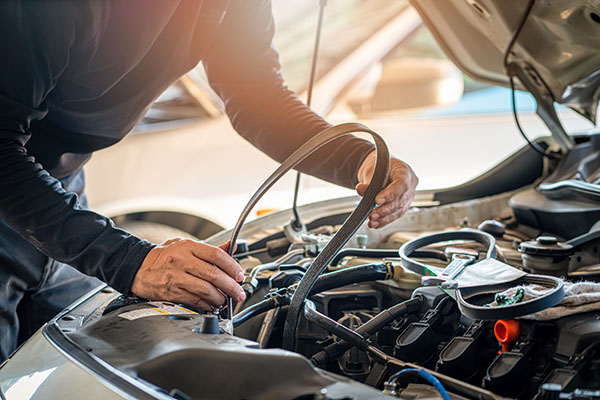
To make sure you're cruising worry-free, regular inspections and checks are a must. Not only do they help catch potential issues early, but they also maintain roadworthiness and keep your vehicle's life revved up! In this blog, we've got the lowdown on the recommended frequency for inspections and checks, so you can stay on top of maintenance and enjoy the road ahead with a big smile! Routine Maintenance Checks Routine maintenance checks are the foundation of keeping your car in good condition. These checks should be performed at specific intervals or based on the mileage driven. The most critical routine maintenance checks include: Engine Oil: Oil, oil, oil! Engine oil lubricates and protects vital engine components which makes it a vital part of your vehicle's "ecosystem". Regular oil changes (typically every 3,000 to 5,000 miles or as recommended by your vehicle's manufacturer) ensure smooth engine operation and prev ... read more
Posted on 6/30/2023
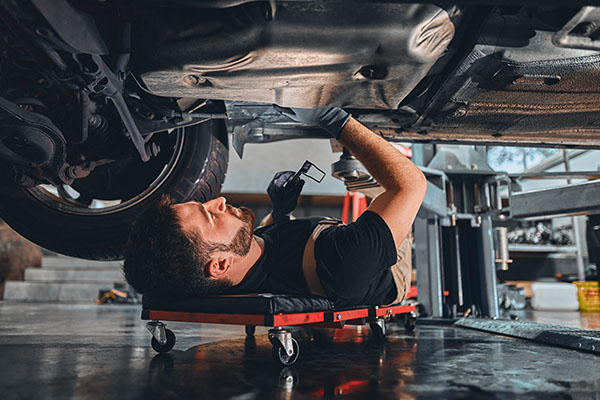
When you visit a repair shop for maintenance or repairs, it's an excellent opportunity to go beyond addressing immediate concerns and ensure the overall health and reliability of your vehicle. In this blog, you will find important checks and inspections you should consider during your visit to the repair shop. By taking a proactive approach, you can catch potential issues early, maintain optimal performance, and enhance your driving experience. #1 Fluid Levels and Quality Fluids play a vital role in the proper functioning of your vehicle, as you might know. Ensure that the repair shop checks and tops up essential fluids, such as engine oil, transmission fluid, coolant, brake fluid, and power steering fluid. Additionally, ask them to inspect the quality and condition of these fluids, as degraded or contaminated fluids can lead to performance issues or damage to critical components. #2 Battery Health A weak or malfunctioning batte ... read more
Posted on 5/31/2023
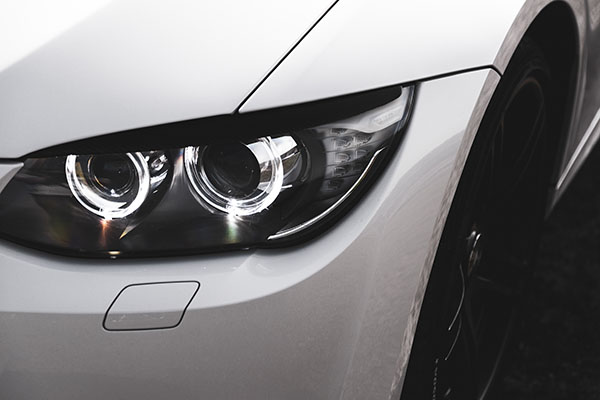
Headlights are essential for driving safely at night and in low-visibility conditions. They illuminate the road ahead and make your vehicle visible to other drivers and pedestrians. However, over time, headlights can become dirty, foggy, yellowed, or cracked due to exposure to dirt, dust, moisture, UV rays, and road debris. This can reduce their brightness and clarity, making them less effective and potentially dangerous. That's why, we will share some easy ways to maintain your car’s headlights and keep them in good condition. How to Clean Your Headlights The simplest way of cleaning your headlights is with a cleaning product (window cleaner works great) and a soft brush. This will remove any dirt and grime that may have accumulated on the surface of the headlights and restore their shine. You can also use a glass cleaner or a specialized headlight cleaner spray for this purpose. Wash your car with a cleaning product and rinse it with water. Spray some c ... read more
Posted on 4/29/2023
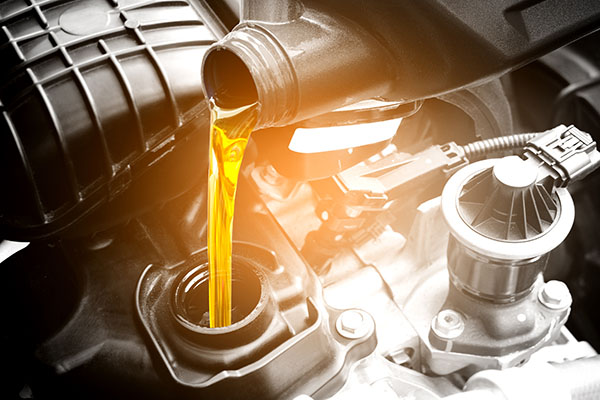
The oil keeps all of the parts in your engine lubricated and working smoothly. While its main job is to provide lubrication, as mentioned above, it also helps with the cooling of the engine components. The engine block is full of crevasses and holes, so the oil can flow freely everywhere. But when it can't do that, problems start to arise. Things like overheating or friction welding occur when the engine has either bad or no oil. That's why we will let you know a couple of ways to spot when your engine oil needs to be changed. Keep in mind that despite our recommendations, the manufacturer's intervals should not be ignored - they can be found in the owner's manual. Is Your Check Engine Light On? If your check engine light is on, one of the many reasons for that can be bad engine oil. When it ages and gets used, it starts to break down, causing it to perform worse. Some newer cars have a warning message that pops up when you're due f ... read more
Posted on 3/28/2023
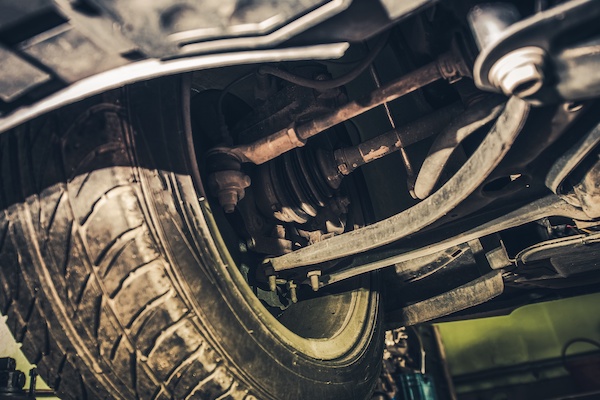
When it comes to the suspension system of a vehicle, two components often come up in conversation: shocks and struts. Although they both serve similar purposes, they have different designs and functions. They shouldn't be used interchangeably, so let's dive deeper into the differences between shocks and struts. Shocks and struts are both responsible for providing a smooth and stable ride by controlling the movement of the springs in the suspension system. However, shocks and struts are different. Shocks Shocks are hydraulic devices that dampen the springs' movement in the suspension system. They consist of a cylinder filled with oil and a piston that moves up and down inside the cylinder. When the wheel hits a bump or dips in the road, the shock compresses and releases the oil, slowing down the spring's movement. Struts Struts, on the other hand, are a structural part of the suspension system that combines the shock absorber and other components. They are a more c ... read more